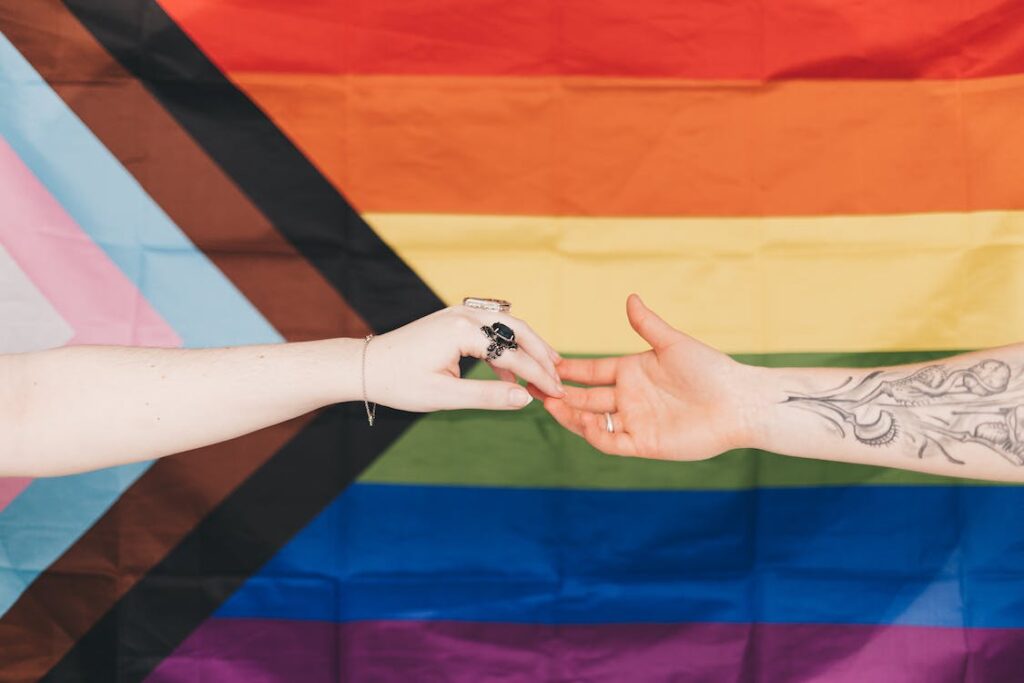
In today’s era, where inclusion and diversity stand as central themes in society, it’s pivotal to familiarize ourselves with terms that champion these values. One such term is FLINTA, an acronym that has surged in prominence, especially in German-speaking countries. But what exactly does it signify, and why is it so paramount?
FLINTA* is an acronym representing various groups related to gender identity. The letters stand for: F for Frauen (women), L for Lesben (lesbians), I for intersex, N for non-binary, T for transgender, and A for agender. The asterisk (*) at the end serves as a wildcard, including those who don’t fit into the specific categories but are marginalized in our patriarchal society. This term aims to promote the inclusion and recognition of these identities in society.
FLINTA: Breaking Down the Acronym
- F stands for “Frauen”, translating to women in English. It encompasses anyone identifying as female.
- L is for “Lesben”, or lesbians in English. These are women romantically and/or sexually attracted to other women.
- I symbolizes intersex individuals, those born with physical traits not typically aligning with traditional male or female definitions.
- N denotes non-binary individuals, those not strictly identifying as male or female.
- T refers to transgender people, individuals whose gender identity differs from their assigned sex at birth.
- A signifies agender individuals, those not identifying with any specific gender.
The asterisk (*) at the end serves as a wildcard, representing all those who don’t fit into the specific categories mentioned but face marginalization in our patriarchal society.
FLINTA vs. LGBTQ+: Spotting the Difference
It’s crucial to note that FLINTA* differs from LGBTQ+. While LGBTQ+ pertains to individuals with a sexual orientation diverging from heterosexual, FLINTA* relates to those with a gender identity distinct from cis hetero male. The essence of using the term FLINTA* lies in acknowledging and incorporating all individuals historically overlooked or excluded by our binary society.
FLINTA’s Significance in Today’s Society
These groups grapple with daily struggles of non-acceptance, discrimination, and societal disadvantages. Embracing the term FLINTA* is a stride towards championing equality and advocating for the rights of those not heterosexual, cisgender, or male. Moreover, it offers a practical approach to address someone when their gender identity remains unknown. Supporting your FLINTA* peers paves the way for a more inclusive society.
Conclusion
Inclusion and representation are cornerstones in today’s society. As we strive to progress towards a more egalitarian world, it’s essential to acquaint ourselves with terms like FLINTA* and grasp its significance and relevance.
- Top 10 Gay Bars in London in 2023: the best LGBTIQ+ clubs
- Bearbie Madrid: The Ultimate Pop Party for Bears and Their Admirers
- The Best Gay Bars & Clubs in Glasgow 2023: Enjoy the LGBTIQ+ Scene
- EuroPride 2023 in Malta: Dates, Schedule, and Parade in Valletta
- What does FLINTA mean? A Glimpse into Inclusion
